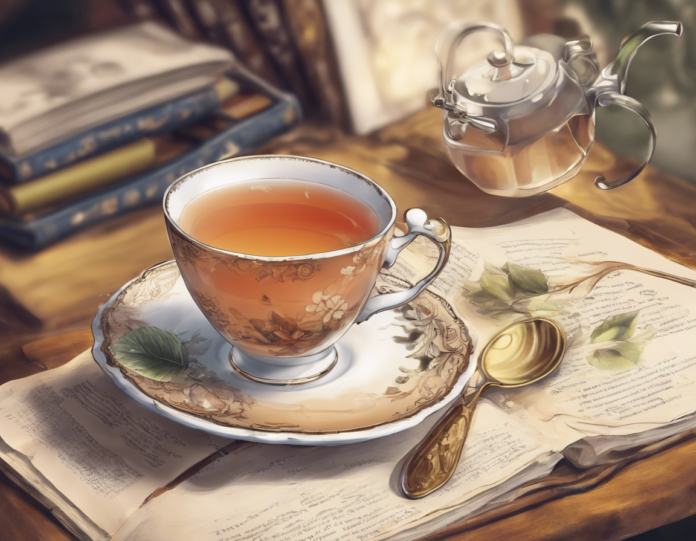Tea, a beloved beverage enjoyed by millions around the world, has a long and rich history dating back thousands of years. From its origins in China to its global presence today, tea has evolved into more than just a simple drink; it has become a cultural phenomenon and a soothing ritual for many. In this comprehensive guide, we will delve into the world of tea, exploring its various types, health benefits, brewing methods, and the art of tea ceremonies.
The History of Tea
Tea’s origins can be traced back to ancient China, where legend has it that Emperor Shen Nong discovered tea around 2737 BC when tea leaves blew into a pot of boiling water. Over the centuries, tea spread to other parts of Asia and eventually to the rest of the world through trade routes and colonization. Today, tea is one of the most widely consumed beverages globally, second only to water.
Types of Tea
There are various types of tea, each with its own unique flavor profile and characteristics. The four main categories of tea are green tea, black tea, oolong tea, and white tea.
– Green tea is known for its grassy and fresh taste, high in antioxidants, and has numerous health benefits.
– Black tea, the most popular type globally, has a bold and robust flavor and is fully oxidized.
– Oolong tea is a semi-oxidized tea with a flavor profile that falls between green and black tea.
– White tea is the least processed tea with a delicate and light flavor.
Health Benefits of Tea
Tea is not only a refreshing beverage but also offers various health benefits. Some of the key benefits of drinking tea include:
– Antioxidants: Tea is rich in antioxidants, such as catechins and polyphenols, which help prevent cell damage and reduce inflammation.
– Improved Heart Health: Studies have shown that regular tea consumption can reduce the risk of heart disease and stroke.
– Boosted Immune System: The polyphenols in tea help boost the immune system and fight off infections.
– Weight Management: Some compounds in green tea can help increase metabolism and aid in weight loss.
– Improved Focus and Alertness: The caffeine and amino acid L-theanine in tea can improve focus and concentration.
Brewing the Perfect Cup of Tea
Brewing tea is an art form that requires attention to detail and the right technique to bring out the best flavor. Here are some tips for brewing the perfect cup of tea:
1. Choose high-quality tea leaves: The quality of tea leaves plays a significant role in the flavor of your tea.
2. Use the right water temperature: Different types of tea require different water temperatures for brewing. Green tea is best brewed at lower temperatures, while black tea needs boiling water.
3. Steep for the right amount of time: Oversteeping or understeeping tea can result in a bitter or weak flavor. Follow the recommended steeping time for each type of tea.
4. Use the proper brewing vessel: Whether using a teapot, teacup, or tea infuser, using the right vessel can enhance the brewing process.
5. Experiment with brewing: Adjust the brewing time, water temperature, and tea-to-water ratio to find your perfect cup of tea.
The Art of Tea Ceremonies
Tea ceremonies, often associated with Asian cultures like Japanese tea ceremonies and Chinese tea ceremonies, are rituals that celebrate the preparation, serving, and drinking of tea. These ceremonies are steeped in tradition and symbolism, emphasizing harmony, respect, and mindfulness. Participants in a tea ceremony often follow specific steps and rituals, such as preparing the tea, serving it with graceful movements, and enjoying it in a peaceful and meditative atmosphere.
Frequently Asked Questions (FAQs)
- Is tea better for you than coffee?
-
While both tea and coffee have their own health benefits, tea is often considered healthier due to its high antioxidant content and lower caffeine levels.
-
Can I drink tea to help with weight loss?
-
Some types of tea, such as green tea, have been shown to aid in weight loss when combined with a healthy diet and regular exercise.
-
How much tea is safe to drink per day?
-
It is generally safe to drink 3-4 cups of tea per day for most adults. However, excessive consumption of tea can lead to negative side effects due to caffeine content.
-
Are herbal teas considered “real” tea?
-
Herbal teas are technically not considered “real” tea as they are not derived from the Camellia sinensis plant. However, herbal teas offer their own health benefits and flavors.
-
Can children drink tea?
- While moderate consumption of tea is generally safe for children, it is advisable to limit their intake due to caffeine content. Herbal teas may be a safer option for children.
In conclusion, tea is more than just a beverage; it is a source of comfort, relaxation, and wellness. Whether you prefer a steaming cup of green tea in the morning or a soothing pot of chamomile tea before bed, there is a tea variety for everyone. Embrace the art of tea brewing, savor the flavors, and enjoy the enriching experience of a simple cup of tea.


Recent comments